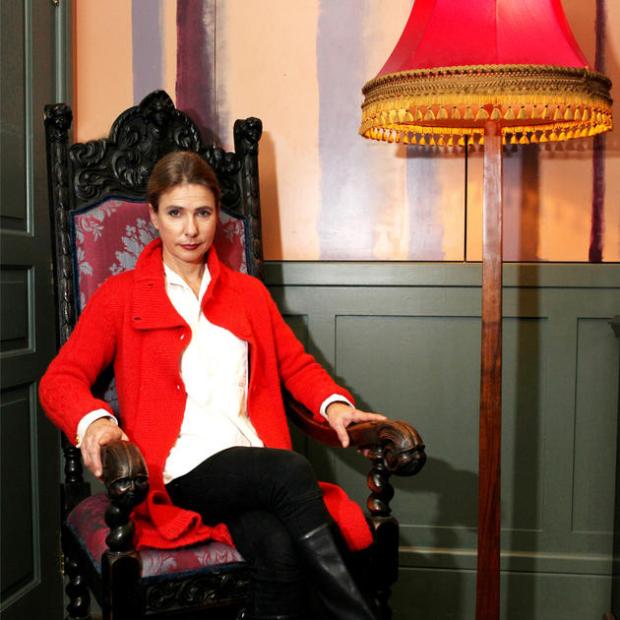Interview with acclaimed writer Lionel Shriver
I was very fortunate to meet writer Lionel Shriver at the Ubud Writers and Readers Festival back in October 2013, where she was launching her new book ’Big Brother’. The well known author of ’We Need to Talk About Kevin’ is one of the authors we aspiring writers only dream of becoming one day. Below is a fascinating conversation I had with her about writing and life.
I’m fascinated with the success of books like ’50 Shades of Grey’ – what’s your opinion about the success of erotica and S&M literature in the last few years?
The argument has been made that this is a form of liberation and women can read about sex too. I can’t advance an informed opinion about this because I haven’t read the book, I don’t know what the appeal is and maybe if I read it I would understand better, but I imagine is probably pretty harmless. No writer can object to anyone reading anything.
I don’t know much about S&M, I don’t feel that way inclined and it’s difficult for me to advance a theory. I’m much more interested in real sadism and real masochism. There are such things, the play acting of it in sex does not engage. I’m going to incline towards examining those inclinations in people on a bigger level. ‘Big Brother’ is about a form of masochism. I do believe that people eat to torture themselves and the ones around them and that’s why I have questioned the expression comfort eating. I don’t think that eating is comforting in the slightest. Not if what you do is eating food you don’t need and is not good for you when you’re already overweight and feeling bad about it. That’s absolutely the opposite of comfort food. Being an anorexic is similarly masochistic, it’s false purification.
What advice, as an accomplished writer, would you give your younger self?
I look back at the years when I wasn’t doing very well and nobody have ever heard of me – which bothered me – and I realise that I was happy and I didn’t know it. And I’m not trying to diminish the disappointments of that time but it was intense and I was alive and I was doing what I wanted to, I was exploring a new city, I fell in love for the first time during those years and I become wholly immersed in my books. What more would I want? Some of the things that I didn’t have then, I have since devalued, one of them being success. It’s a surprisingly mild and quiet experience. And it also comes with its own pains in the arse. I was able to concentrate then, I did some (what I think was) some good work and I was doing what I wanted.
If I didn’t have much money, I discovered that getting a little bit more doesn’t make that much of a difference. They did some research on this and discovered that getting a little bit more does make a difference in the sense that you can think about something else, but a whole lot more only makes a little difference. It’s the law of diminishing returns and it’s true for so many things. I have a philosophy about wine, there’s only so much I would pay for a bottle of wine. It’s not because I can’t technically afford it. It’s one of the things I care about that money does buy. But once you’ve get past $15 a bottle you have to keep paying more and more money for only slightly better wine. And the more you pay for it, the more you put pressure on yourself to really enjoy it. And there are only a few sips in every bottle, so I apply the law of diminishing returns to my wine purchases and I have a ceiling for how much I pay for a bottle of wine and that is an informed ceiling.
How has your writing evolved over the years?
I think it’s gotten a lot simpler. The biggest change for me it’s been to become less interested in words for the words sake and I am a little less transfixed with the sound of my own voice. I am much more interested with whatever that voice is trying to say. I am more oriented towards content. The irony is that if you worry about the content then you have to say it as well as possible. But that doesn’t mean getting caught up in some hugely elaborated metaphor or using a bunch of words that you haven’t used before. You just have to say it as clearly and as persuasively as possible. So I think the work is a little less fancy and that’s fine with me. I find that when I read people’s work that is clearly more in that earlier phase – playing lots of literary tricks – I just get turned off, I don’t want to read it.
Are you a feminist?
I do call myself a feminist. I’m a little conflicted about the term as it’s become so contaminated. If you call yourself a feminist nowadays it seems to indicate you don’t have a sense of humour.
Does being a woman influence your writing style?
I’ve never to my knowledge been a man, except in fiction. I like being able to inhabit male characters and my conception of myself is ultimately androgynous. I do not think that my inmost self has a gender. When I walk down the street, I’m just a consciousness looking and existing and in motion through space, but not only do I not experience myself as a body, I also do not experience myself primarily as a woman.

